The Islamic State poses an ideological challenge to Saudi Arabia, as it fuels Salafist debate about political Islam.
The meteoric rise of the Islamic State of Iraq and the Levant (ISIS) and its declaration of an Islamic State straddling the two Arab countries raises the specter of a militant Islamist state in the heart of the Middle East, close to the borders of US allies like Israel, Jordan and Saudi Arabia. If the threat to Israel and Jordan is primarily security, to Saudi Arabia it is also ideological, with the Islamic State (IS) tracing its roots back to the philosophy of the 18th century warrior-jurist Mohammed ibn Abdul Wahhab and other Islamic sources on which the kingdom was built, and constituting a reference point that Salafists cannot ignore.
With its military advances in large swathes of Syria and Iraq, IS has achieved extremist control of the largest chunk of territory in recent times. It is the first jihadist group to seize control of resources like oil fields and refineries. The group adds to significant revenues earned from extortion and kidnapping, as well as a revived flow of funding from individuals and charities in the Gulf. The group has currently seized seven oil fields and two smaller refineries in northern Iraq, in addition to its Syrian assets.
Ideological Affinity, Political Pragmatism
IS’ focus on control of territory rather than spectacular international suicide attacks makes the US and Europe less of an immediate target. As a result, IS projected the brutal and demonstrative killing of American journalist James Foley as retaliation for US air strikes rather than the launch of an anti-American terror campaign. Western policymakers and intelligence officials fear, nonetheless, that foreign volunteers joining the group’s ranks could return home as hardened global jihadists.
Ideological affinity and political pragmatism, which contrasts with the ideological purity that al-Qaeda has sought to maintain, at times blur the lines between IS, Saudi Arabia and other Gulf states that have yet to crack down on the flow of funds, and the region’s Salafist clergy. While IS has forged alliances with former Baathists — unthinkable in the past — its cooperation with local tribes is likely to have had tacit Saudi approval, in the absence of a credible effort to establish an inclusive government in Baghdad that is capable of reaching out to Iraqi Sunnis.
Apparent Saudi withdrawal of that approval could, however, put IS’ alliances to the test. The kingdom signaled its shifting attitude with King Abdullah congratulating Haider al-Abadi on his mandate to form a new Iraqi government, followed by the kingdom’s grand mufti denouncing IS on August 19. Sheikh Abdul Aziz al-Sheikh issued his condemnation only after Abdullah had publicly criticized the clergy for failing to play its role in combating terrorism.
IS’ focus on control of territory rather than spectacular international suicide attacks makes the US and Europe less of an immediate target. As a result, IS projected the brutal and demonstrative killing of American journalist James Foley as retaliation for US air strikes rather than the launch of an anti-American terror campaign.
Sheikh Ali Hatem al-Suleiman al-Dulaimi, leader of one of Iraq’s most powerful tribal confederations, has meanwhile offered support for a new Iraqi government, provided it meets Sunni demands for equitable power-sharing.
Salafi Debate
IS’ ideological challenge is reflected in debates among Saudi Arabia’s political and religious elite as well as its Salafi base. Supporters of IS point to its confrontation of Shiites, widely viewed as heretics by Wahhabis and Salafis; its return to the roots of Salafism, and its view of existing regimes as apostates. Its Salafi critics fall into two categories: the quietists who fear a militant challenge to the al-Saud family’s control of the kingdom and enjoin obedience to the ruler, even if he is unjust; and reformists who reject IS’ totalitarianism as contradicting a Salafist tradition that promotes freedom of expression and endorses opposition to authority.
To the quietists, IS raises the specter of a repeat of Saudi history, in which the Sauds defeated Wahhabi tribesmen in the 1920s and transformed Wahhabism, from a movement that imposed puritanism by force and propagated an austere interpretation of Islam, into a socially conservative pillar of support for the regime. Quietists argue that IS’ threat to reverse the Saud’s co-optation of Wahhabism illustrates political Islam’s inability to come to grips with modernity and the concept of a modern state. As a result, they argue that it will, at best, establish yet another authoritarian regime that already has demonstrated its rejection of any notion of liberal rights.
IS military tactics of sowing confusion coupled with speed, fearless resolve, and the use of land mines and buried explosives has made it a formidable opponent on the ground and more difficult to target from the air. IS’ guerrilla tactics took by surprise Kurdish Peshmerga, who relied on their outdated two-decades-old guerrilla experience against the army of former Iraqi dictator Saddam Hussein.
Beyond the security threat, IS challenges Saudi rulers with its effort to create a state that implements the very principles the kingdom’s Wahhabi rulers claim to embrace. In doing so, it forces Saudi Arabia to walk a tightrope in balancing its policies that severely restrict women’s rights and other human rights, with its fending off of mounting international criticism that it is jihadism’s ideological mother lode.
Matching Words With Deeds
In a bid to counter the criticism and distance the kingdom from allegations of support for jihadism, Saudi Ambassador to Britain Mohammed bin Nawaf Al Saud wrote in The Guardian: “… Muhammad Ibn Abd al Wahhab, was a well-travelled, learned, scholarly jurist of the 18th century. He insisted on adherence to Qur’anic values and the teachings of the prophet Muhammad (PBUH) which includes the maximum preservation of human life, even in the midst of jihad. He taught tolerance and supported the rights of both men and women.”
He went on to say: “The government of Saudi Arabia does not support or fund the murderers who have collected under the banner of the Islamic State. Their ideology is not one that we recognize, or that would be recognized by the vast majority of Muslims around the world — whether they were Sunni or Shia.”
To effectively counter the IS challenge, Saudi Arabia will have to match the ambassador’s words with deeds. That would involve far-reaching reform, including the abolition of debilitating restrictions on women like a ban on driving and limited access to the labor market, as well as an escalating crackdown on freedom of expression. So far, there is little indication that Saudi rulers are willing to travel down that road.
*[This article was originally published by RSIS.]
The views expressed in this article are the author’s own and do not necessarily reflect Fair Observer’s editorial policy.
1 comment
Leave a comment
You must be logged in to post a comment.
Support Fair Observer
We rely on your support for our independence, diversity and quality.
For more than 10 years, Fair Observer has been free, fair and independent. No billionaire owns us, no advertisers control us. We are a reader-supported nonprofit. Unlike many other publications, we keep our content free for readers regardless of where they live or whether they can afford to pay. We have no paywalls and no ads.
In the post-truth era of fake news, echo chambers and filter bubbles, we publish a plurality of perspectives from around the world. Anyone can publish with us, but everyone goes through a rigorous editorial process. So, you get fact-checked, well-reasoned content instead of noise.
We publish 2,500+ voices from 90+ countries. We also conduct education and training programs
on subjects ranging from digital media and journalism to writing and critical thinking. This
doesn’t come cheap. Servers, editors, trainers and web developers cost
money.
Please consider supporting us on a regular basis as a recurring donor or a
sustaining member.
Will you support FO’s journalism?
We rely on your support for our independence, diversity and quality.


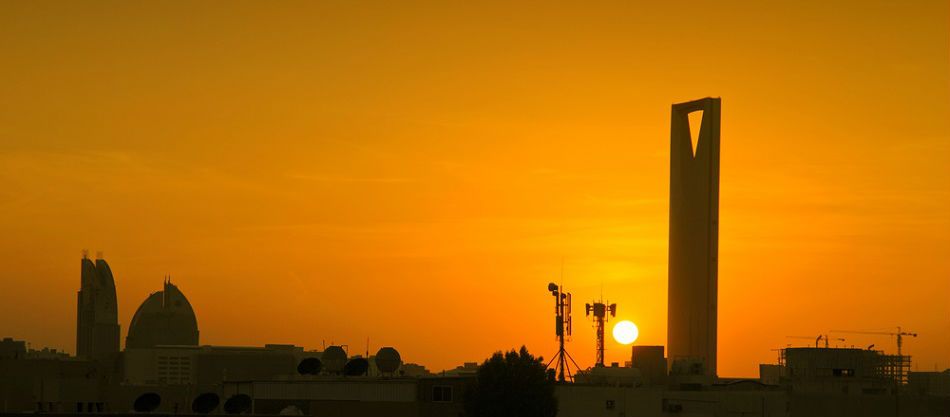


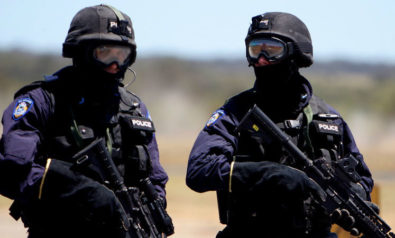



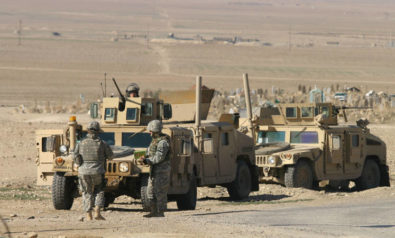
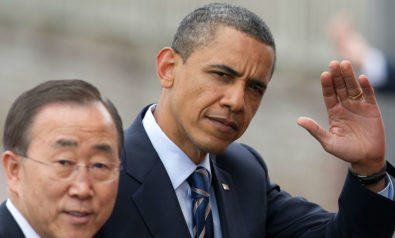

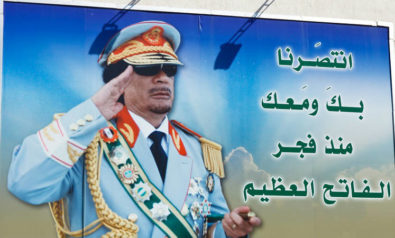

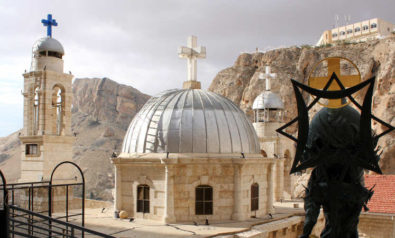


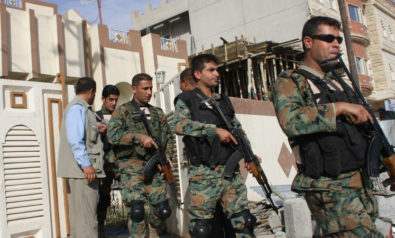
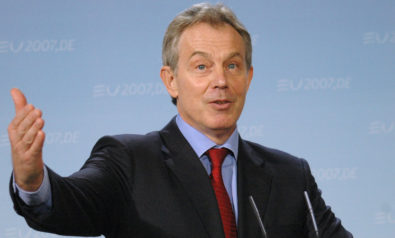
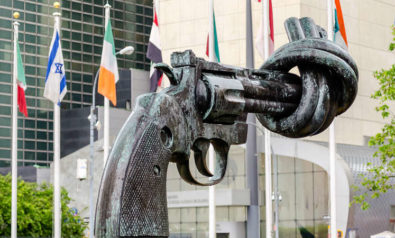

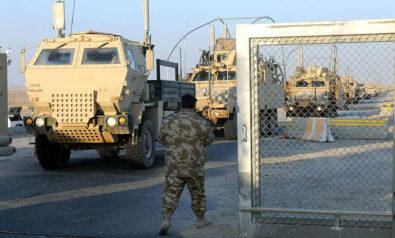





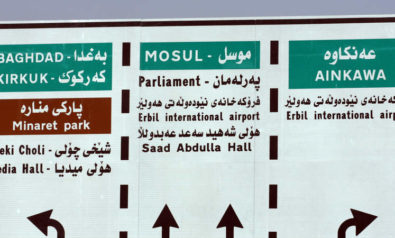



Christine Osborne
September 6, 2014
"......its view of existing regimes as apostates..." etc. Yet neither Saudi Arabia, nor indeed any of the other Arab States, is willing to join with western governments in lifting a finger to help, nor to aid the Yazidis, stranded on Mount Sinjar, nor to offer aid or support to Christians fleeing the creeping black tide which, if not stopped - wiped out is more appropriate - will bring down not only the Saudi regime, but those of the Arab Gulf States. Cannot happen? Look what has occurred, virtually overnight, in major water and oil rich areas of Syria and Iraq. Thank you.